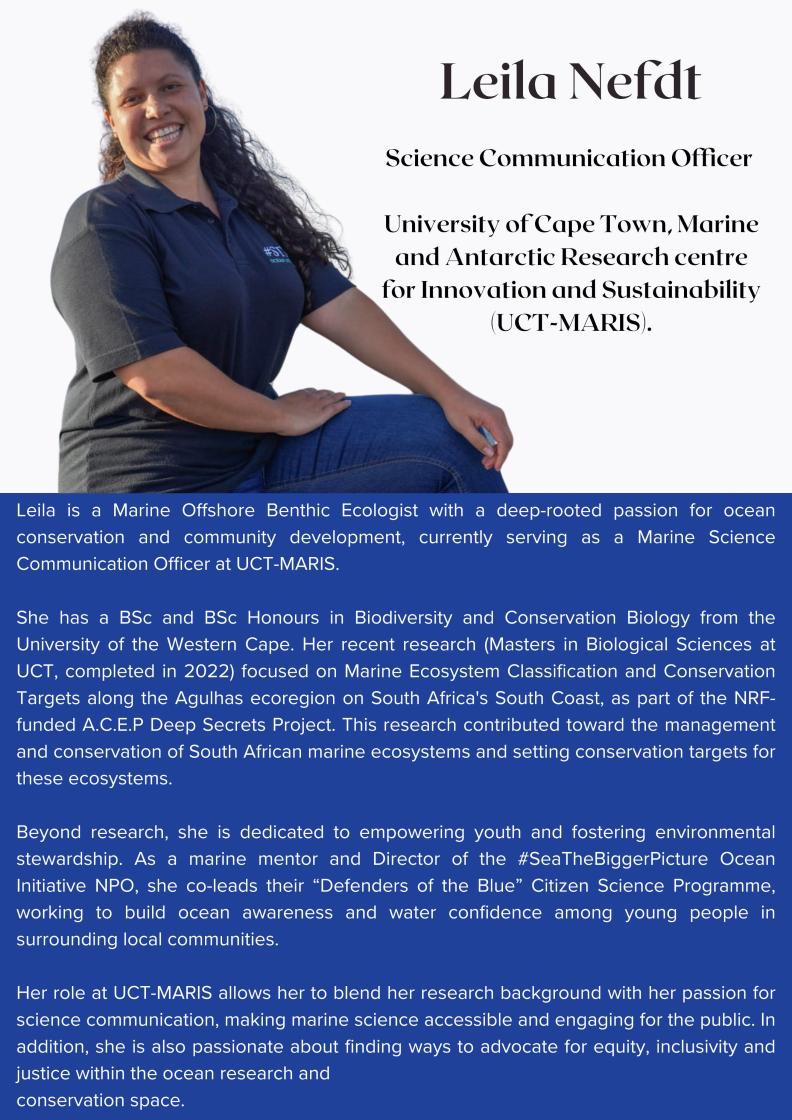Our Science Communication Officer, Leila Nefdt, was offered the opportunity to come onboard to the Mahlalela Mentorship Programme as a mentor and share how you can communicate your science and engage with the public, including various tips and tricks for researchers to share their science story. With over 30 attendees, Leila took them through her presentation titled, "Beyond the Lab: Communicating Your Science with Impact", highlighting the following points:
- Importance of science communication
- Forms of communication & engagement and examples
- Tips and tricks on engaging with your audience and sharing your story

Leila shared that without effective communication, gatekeeping will persist, and barriers will continue to exclude people from understanding science.
If you don't tell your story, who will? The world needs your science, BUT it also needs your voice.
For those who missed out on the webinar, please see the pdf version and the recording of her presentation below.
The Mahlalela Mentorship Programme is co-designed by the South African Polar Research Infrastructure (SAPRI), the Association of Polar Early Career Scientists of South Africa (APECS SA) and the South African Network for Coastal and Oceanic Research (SANCOR).
The Mahlalela Mentorship Programme is dedicated to empowering and fostering connections within the polar and marine research community by facilitating mentorship between early-career researchers (ECRs) and experienced professionals. Through structured mentorship, the programme seeks to bridge knowledge gaps by promoting the exchange of best practices, innovative ideas, specialised expertise, and essential skills, ultimately enriching the broader marine and polar research landscape (visit the SAPRI website for further details - https://www.sapri.ac.za/). The programme will comprise of two sections:
Iteration I: Power skills development This iteration features a webinar series focused on foundational research skills applicable to all participants, whether mentor or mentee. Topics covered include CV building, conflict resolution, data handling and analysis, effective supervision techniques, and science communication. Concurrent participation by mentors and mentees promotes shared learning, fosters best practice dissemination, and cultivates a sense of community.
Iteration II: Targeted skills development This iteration focuses on targeted marine and polar skills development through individualised mentorship. While not intended to replace formal supervisory relationships, the programme also offers mentors the opportunity to refine their own supervisory skills. Mentors and mentees will be matched, and individual sessions will be organised to address technical challenges and obstacles encountered in current research or projects. Mentors can also provide guidance on topics such as those covered in the webinar series, or offer more specialised technical support based on their area of expertise.